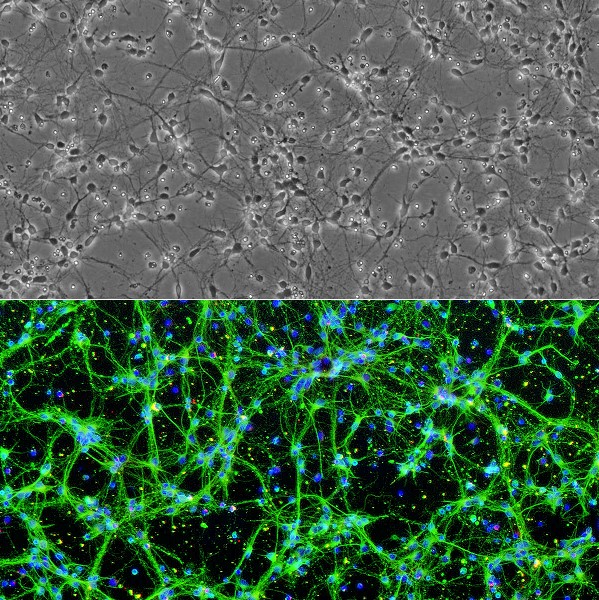Rat Spinal Cord Neurons: RSpN
Cryopreserved Rat Spinal Neurons (RSpN): Frozen RSpN (2×10^6)
Size: 1 Cryovial
Price: $707.00
Description
Rat Spinal Cord Neurons (RSpN) are derived from spinal cords of normal embryonic rat (gestation day 15) by standardized methods. When cultured under the recommended conditions, RSpN arborize and form complex neurite network in one week. RSpN Stain positive for β III-Tubulin.
The spinal cord is consisted of tubular bundles of nervous tissues and support cells. Extending from the medulla oblongata of the brainstem, the spinal cord transmits neural signals between the brain and the rest of the body, and plays a key role in somatosensory and motor functions. Spinal cord injuries, diseases and degeneration, such as Friedreich’s ataxia, Amyotrophic lateral sclerosis, and spinal muscular atrophies, cause weakening or loss of sensory and motor functions. Studies using spinal cord neurons will allow a better understanding of the disease mechanisms, physiopathologies, and advancement in drug development and therapies. Cultures of spinal cord neurons can be applied for a variety of experiments including toxicity test, immunostaining, live cell imaging, co-culturing, electrophysiology, and more.
Details
| Tissue | Normal healthy rat spinal cord | |
|---|---|---|
| QC | No bacteria, yeast, fungi, mycoplasma, virus | |
| Character | Positive for β-III Tubulin | |
| Bioassay | Plate on Poly-D-Lysine coated surface, Arborize to form neurite network in Culture Med | |
| Cryovial | 2 or 4M RSpN in Ser-Fr Frzng Med (042-50) | |
| Doublings | N/A – Neurons don’t proliferate in vitro | |
| Applications | Laboratory research use only (RUO). Not for human, clinical, diagnostic or veterinary use. |
Resources
FAQs
Need More Help?
Visit our comprehensive FAQ page for detailed answers to common questions.
Need More Help?
Visit our comprehensive FAQ page for detailed answers to common questions.
Primary Cell FAQs